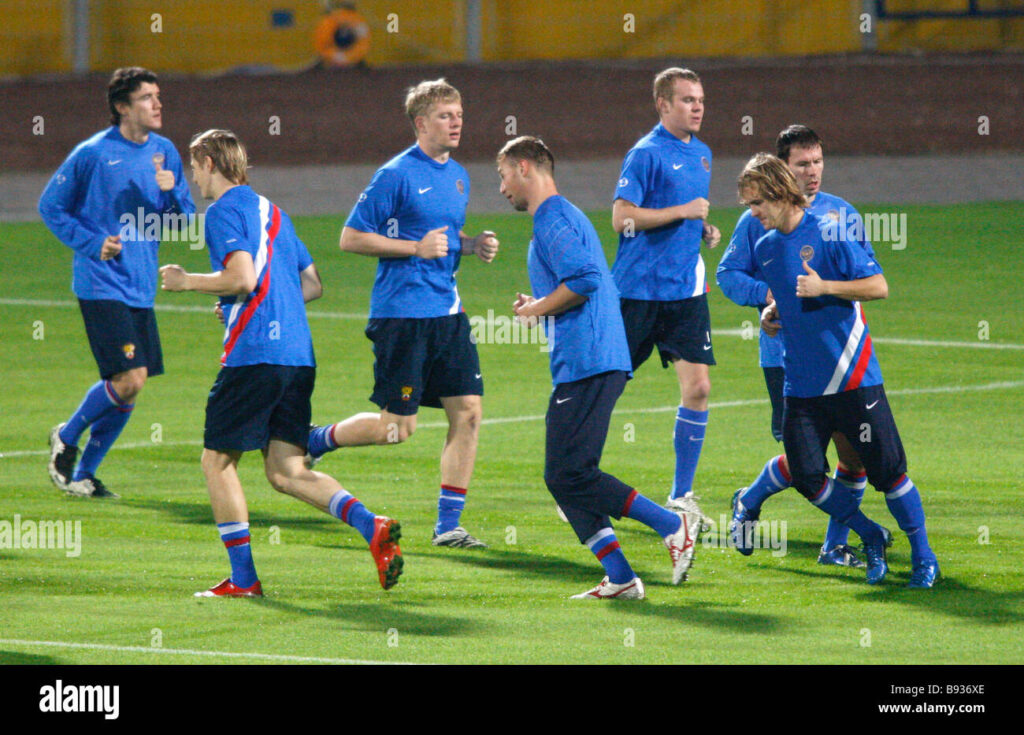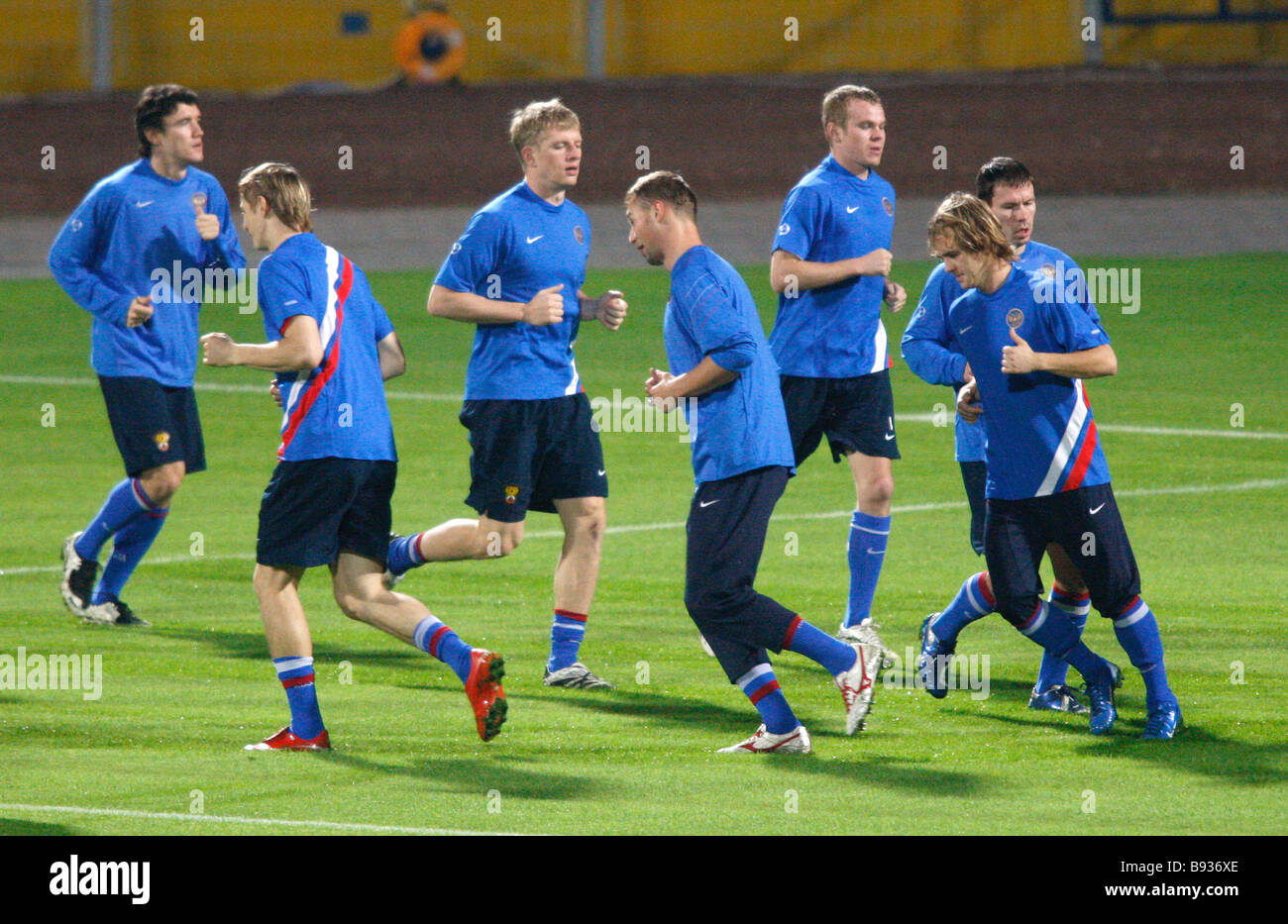
The Russian National Football Team: A History of Triumph and Turmoil
The Russian national football team, also known as сборная России по футболу (sbornaya Rossii po futbolu) in Russian, has a rich and complex history, marked by periods of success, significant challenges, and political upheaval. From its roots in the Russian Empire to its current status, the team’s journey reflects the broader socio-political landscape of Russia and its place on the global stage. This article delves into the history, achievements, controversies, and future prospects of the Russian national football team.
Early Years and Formation
The origins of football in Russia can be traced back to the late 19th century, with the first football clubs emerging in major cities like St. Petersburg and Moscow. However, it wasn’t until 1912 that the first official Russian national football team was formed to participate in the Summer Olympics in Stockholm. The team, composed largely of players from St. Petersburg clubs, faced a tough challenge and was eliminated early in the tournament. This initial foray into international competition provided valuable experience and laid the groundwork for future development.
The Soviet Era
Following the Russian Revolution and the establishment of the Soviet Union, the Russian national football team was reorganized as part of the broader Soviet sports system. The Soviet Union national football team, which included players from various Soviet republics, became a dominant force in international football. While technically not solely representative of Russia, the team’s core often consisted of Russian players, and its successes were celebrated throughout the Russian Soviet Federative Socialist Republic (RSFSR). The Soviet team achieved significant milestones, including winning the gold medal at the 1956 Summer Olympics and the 1960 European Championship. Key Russian players contributed significantly to these victories, solidifying Russia’s reputation as a footballing nation.
Post-Soviet Era: Rebirth and Rebuilding
The dissolution of the Soviet Union in 1991 marked a new chapter for Russian national football team. A new team was formed, inheriting the FIFA membership of the Soviet Union and began competing under the Russian flag. The initial years were challenging, as the team struggled to find its identity and rebuild its infrastructure. The 1994 FIFA World Cup in the United States was the first major tournament for the newly formed team. While they qualified, their performance was underwhelming, and they were eliminated in the group stage. This period was characterized by instability and a lack of consistent performance.
Euro 1996 and the Late 1990s
The late 1990s saw some improvement in the team’s performance. Qualifying for Euro 1996 was a significant achievement, although their campaign in England ended prematurely in the group stage. The team boasted talented players, but struggled to compete against the established European powerhouses. Internal issues and managerial changes further hampered their progress. [See also: History of European Football Championships]
The 21st Century: Ups and Downs
The 21st century has been a mixed bag for the Russian national football team. While there have been moments of brilliance, consistent success has remained elusive. The team qualified for the 2002 FIFA World Cup in South Korea and Japan, but again failed to make a significant impact. The appointment of Guus Hiddink as head coach in 2006 marked a turning point.
Euro 2008: A Semifinal Run
Under Hiddink’s guidance, the Russian national football team experienced a resurgence. Euro 2008 in Austria and Switzerland was a watershed moment. The team played attractive, attacking football and reached the semi-finals, defeating the Netherlands in a memorable quarter-final match. This performance reignited passion for football in Russia and raised expectations for future tournaments. Key players like Andrei Arshavin and Roman Pavlyuchenko emerged as stars, capturing the imagination of fans.
Post-2008 Disappointments
Despite the success of Euro 2008, the team struggled to maintain that level of performance. They failed to qualify for the 2010 FIFA World Cup in South Africa, a major disappointment for fans. Subsequent tournaments saw similar struggles, with early exits from Euro 2012 and the 2014 FIFA World Cup in Brazil. Managerial changes and a lack of consistency continued to plague the team. [See also: FIFA World Cup Qualifying Records]
Hosting the 2018 FIFA World Cup
Russia’s successful bid to host the 2018 FIFA World Cup brought renewed hope and investment into the country’s football infrastructure. The tournament was seen as an opportunity to showcase Russia to the world and leave a lasting legacy for the sport. The Russian national football team, under the guidance of coach Stanislav Cherchesov, prepared extensively for the tournament.
2018 World Cup Performance
Expectations were low heading into the 2018 World Cup, but the Russian national football team surprised many with their performance. They exceeded expectations by reaching the quarter-finals, defeating Spain in a dramatic penalty shootout in the round of 16. The tournament was a resounding success for Russia, both on and off the field. The team’s performance boosted national pride and demonstrated the potential of Russian football. The atmosphere throughout the tournament was electric, and the event was widely praised for its organization and hospitality.
Recent Years and Current Status
Following the 2018 World Cup, the Russian national football team has continued to compete in international competitions, including the UEFA Nations League and European Championship qualifiers. However, the team has faced challenges in maintaining consistency and competing against top European teams. Recent political events and sanctions have further complicated the team’s participation in international football. [See also: UEFA Nations League Explained]
Sanctions and Exclusion
In the wake of the conflict in Ukraine, the Russian national football team has been suspended from participating in FIFA and UEFA competitions. This exclusion has had a significant impact on the team’s ability to compete and develop. The future of Russian football remains uncertain, as the duration and extent of the sanctions are yet to be determined. This situation has also affected Russian clubs, who have been barred from participating in European club competitions.
Key Players and Historical Figures
Throughout its history, the Russian national football team has been home to many talented players who have left their mark on the sport. From legendary Soviet-era players like Lev Yashin and Oleg Blokhin to modern stars like Andrei Arshavin and Aleksandr Kokorin, Russian footballers have contributed significantly to the global game. These players have inspired generations of fans and helped to shape the identity of Russian football.
Future Prospects
The future of the Russian national football team is uncertain, given the current political climate and sanctions. However, there is still hope for the development of young talent and the eventual return of the team to international competition. Investment in youth academies and grassroots programs will be crucial for building a strong foundation for the future. The passion for football in Russia remains strong, and the country has a history of producing talented players. Overcoming the current challenges will require dedication, innovation, and a commitment to fair play.
The journey of the Russian national football team is a story of triumph, adversity, and resilience. From its humble beginnings to its successes on the international stage, the team has reflected the broader history and culture of Russia. While the future remains uncertain, the passion for football in Russia endures, and the country looks forward to the day when its national team can once again compete on the world stage.
Despite the current challenges, the legacy of the Russian national football team continues to inspire and motivate aspiring footballers throughout the country. The team’s history serves as a reminder of the power of sport to unite people and overcome obstacles. As Russia navigates its future, football will undoubtedly continue to play a significant role in the nation’s identity and culture. The Russian national football team hopes to one day return to its former glory.
The story of the Russian national football team is far from over. The team’s resilience and determination will be tested in the coming years, but with the support of its fans and a commitment to excellence, it can overcome the current challenges and once again compete at the highest level. The Russian national football team remains a symbol of national pride and a source of inspiration for generations to come.
